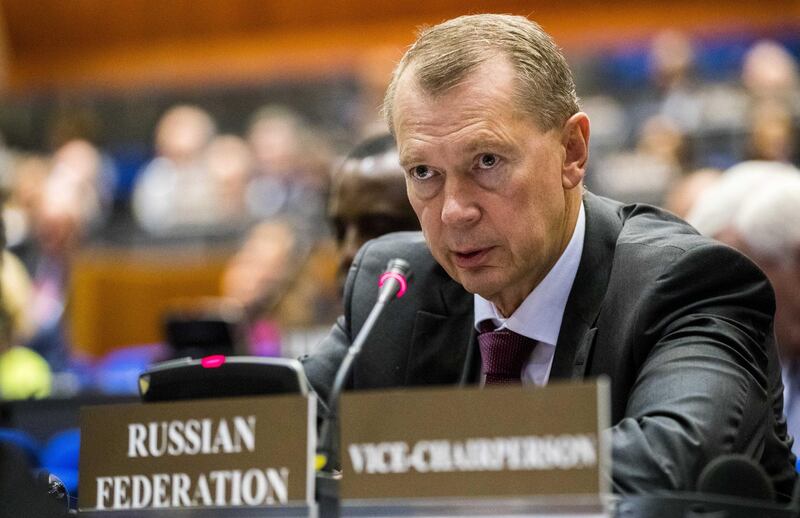Britain moved Tuesday to close a gap in the regime banning use of chemicals weapons by giving the international watchdog the power to name states it believed were responsible for the illegal attacks.
A British-led proposal – backed by countries including Germany, France and the United States – wants to bolster the role of the Organisation for the Prohibition of Chemical Weapons (OPCW) amid a rise in the use of weapons in Syria and worldwide.
Britain pushed for expanded powers for the OPCW following a nerve agent attack on a former Russian spy on UK territory in March, which resulted in a tit-for-tat series of diplomatic expulsions by the two sides and their allies.
“We now owe a duty to the world to seize the opportunity that this meeting provides to uphold and strengthen that ban, so that chemical weapons are truly banished to the past,” said the UK Foreign Secretary Boris Johnson in a statement.
The meeting comes as the organisation prepares a report on an April alleged poison attack on Douma, near Damascus, Syria, that killed dozens and triggered air strikes by the United States, France and Britain.
_______________
Read more:
[ Russia warns against beefing up chemical watchdog ]
[ Britain calls for meeting to strengthen resolve against chemical weapons ]
_______________
Western governments have blamed Syrian President Bashar Al Assad and his backers, Russia, of using chemical weapons and protracting the dispute. Both countries deny using chemical weapons.
The OPCW, which oversees a 1997 treaty banning the use of toxins as weapons, has the technical expertise to assess what chemical weapons were used but currently does not have the powers to apportion blame.
A joint UN-OPCW team, known as the Joint Investigative Mechanism, previously held the responsibility of trying to identify those behind chemical weapons attacks in Syria. It concluded that Syrian government troops had used the nerve agent sarin and chlorine bombs.
But the body was disbanded last year after Russia used its veto power on the UN Security Council to refuse to extend its mandate.
"The widespread use of chemical weapons by Syria in particular threatens to undermine the treaty and the OPCW,” Gregory Koblentz, a non-proliferation expert at George Mason University in the United States, told Reuters.
The special meeting called to discuss bolstering the OPCW’s powers was delayed after Russian, Iranian and Syrian representatives raised a series of procedural points on Tuesday morning.
“One delegation has made it quite clear… they intend to dispute everything,” said Kenneth Ward, the US ambassador to the OPCW, during heated exchanges between the rival blocs.
Russian representative Alexander Shulgin denied it was using “procedural tricks” to hold up the debate on expanding the powers of OPCW – a move it opposes.
“We’re not trying here to be a stumbling block,” he said. “Before we cross the Rubicon, we want to understand where the stepping stones are.”
Despite the Russian filibustering, the UK-led intervention will see a vote on Wednesday involving more than 140 nations attending the special session in The Hague, Netherlands.
If the UK is successful in persuading more than two-thirds of nations to back the measures, it would thrust the 20-year-old OPCW to the centre of the dispute between western powers and Russia over the use of chemical weapons.
It comes after relations between the UK and Moscow fell to their lowest level for years following the attempted murder Russian former double agent Sergei Skripal in Salisbury in southern England.
While the weapons have been used most commonly in Syria, they have also been used since 2012 in Iraq and Malaysia, where the half-brother of North Korean leader Kim Jong Un was assassinated with VX nerve agent.






